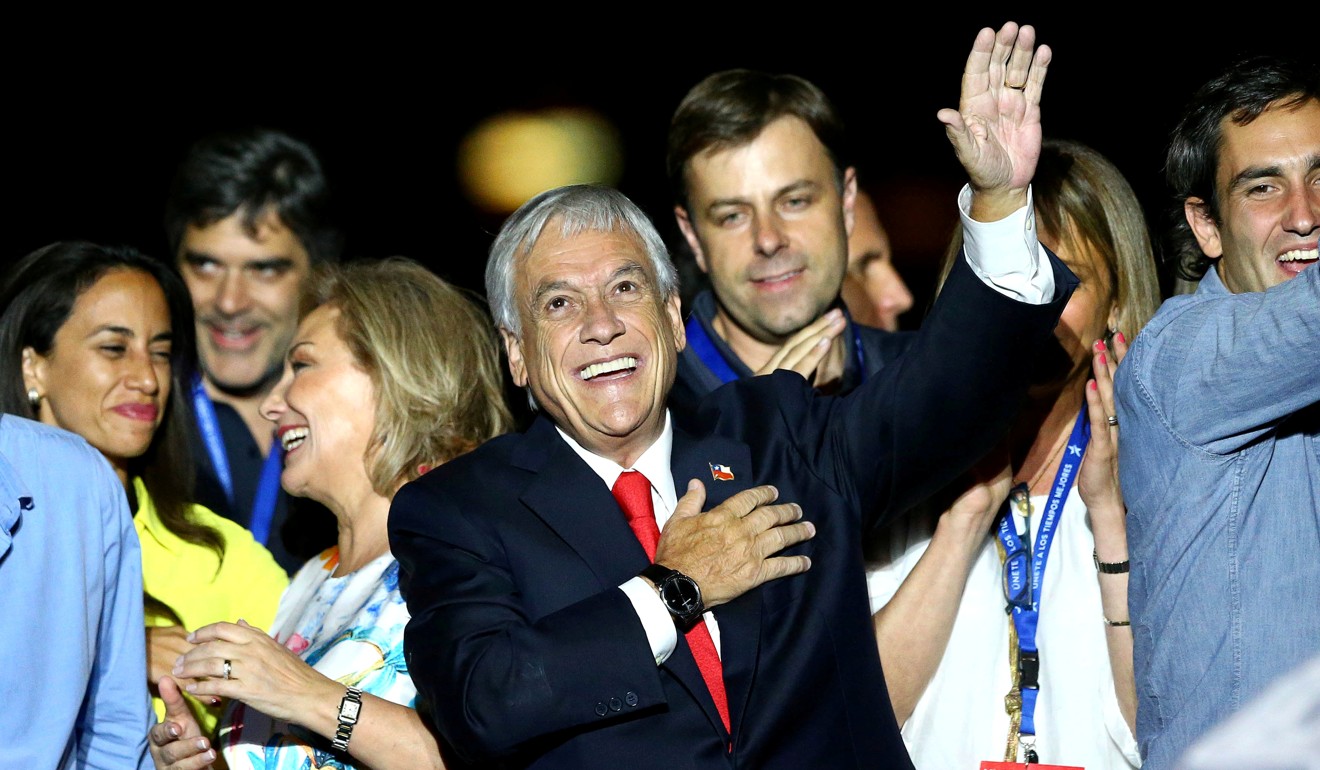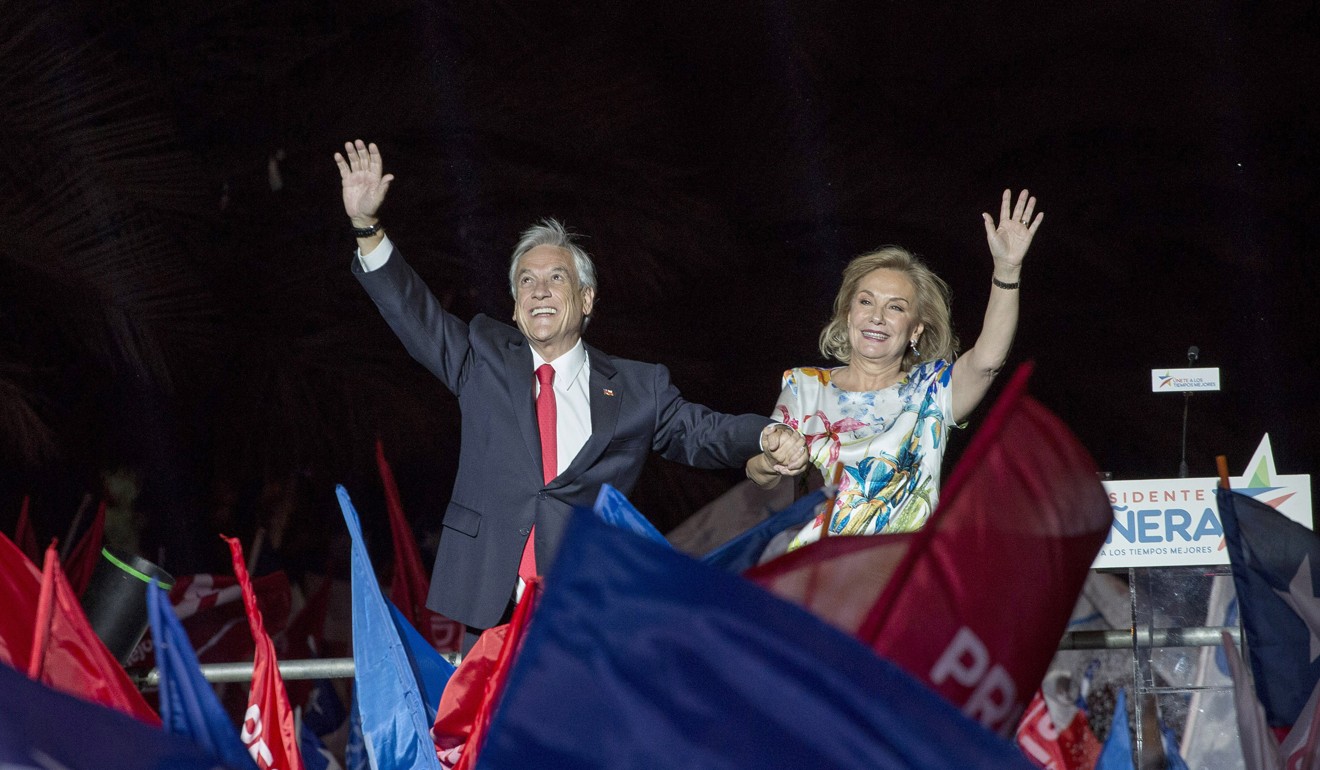
Billionaire Pinera secures another turn as Chile’s president, joining wave conservative winners in Latin America
Former President Sebastian Pinera’s resounding victory in a presidential run-off election swings Chile back to the right and highlights the increasing number of conservative leaders who have won power in Latin America.
With nearly all ballots counted, the billionaire won 54.6 per cent of the votes Sunday to 45.4 per cent for former journalist and centre-left senator. Alejandro Guillier. Analysts had predicted a much closer contest, feeling Guillier had gained ground, although there had not been any opinion polls since the election’s first round in November.
Pinera, who ran on a platform of boosting sluggish economic growth in the world’s top copper producer, thanked his opponents and called for unity.

Pinera, 68, won last month’s first round, but fell far short of what polls had projected. Turnout had been expected to be low for the run-off because in contrast to other regional countries, Chile made voting voluntary rather than mandatory in 2012.
The former airline magnate was also president from 2010 to 2014.

Guillier, 64, had received the support of current President Michelle Bachelet, and had vowed to continue her plan to increase corporate taxes to partly finance an education overhaul, reform the constitution and improve the pension and health care system.
But many Chileans have been disillusioned by lagging economic growth during Bachelet’s administration, a problem based largely on lower international prices for copper, which is the backbone of Chile’s economy. Many also feel she wavered on her promises of profound social changes in labour and education and the vote was largely seen as a referendum on her policies.

During his first term as president, Pinera struggled with large protests over Chile’s inequality and demands for education reform and left office with low popularity ratings. But he also oversaw annual economic growth of about 5 per cent a year.
He now proposes to slash taxes on business to revive growth and vows to launch a US$14 billion, four-year spending plan that includes fresh investments in infrastructure.
In recent weeks, Pinera had compared Guillier to Nicolas Maduro, the socialist president of crisis-torn Venezuela. At first, that tactic seemed to backfire by rallying support for Guillier from hard-left factions that had been cool on him earlier.
“Fear can be tricky because it tends to demobilise voters,” Sajuria said. “But he managed it pretty well … my impression is that people who were afraid of the outcome voted for him.”

